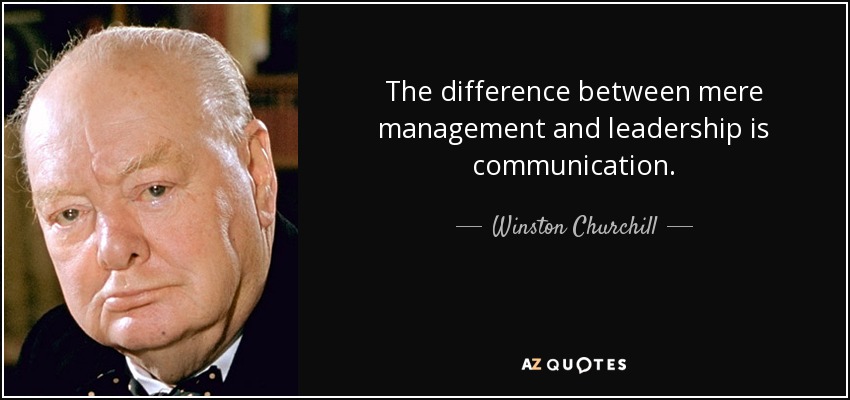
Sir Winston Churchill (1874-1965) was a British statesman, writer and artist who was Prime Minister of Great Britain from 1940 to 1945 and again from 1951-1955. His leadership and communication skills were exceptional and it was partly due to his ability to inspire and motivate the British people during World War II that led to eventual victory.
The difference between mere management and leadership is communication.
Winston Churchill
He was the first of the great modern communicators.
His rich and often eccentric use of the English language has earned him a unique place in history. No political leader, before or since, has enriched their language with as many memorable speeches and quotations. Greatquotes.com alone lists more than five hundred of Churchill’s best-known remarks, but there are hundreds more.
The leadership secret
What’s the secret of this great man’s leadership success? He believed it takes courage to speak your mind, especially if not everyone agrees with you. But he also believed it took courage to stay quiet and listen.
He knew that in politics as well as in business, good communication is the heart of effective leadership. Let’s look at the principles that guide successful leaders, many of which have done so for generations.
Effective leadership: Share information as often as you seek it.
Information in this sense means more than just the numbers. Building relationships is necessary for communication to work and for leadership to be effective. Talk frequently about thoughts and feelings, not just about facts. Have de-briefings after major projects, discuss the lessons learned and capture the enthusiasm from a task well done and inject it into the next one.
Make sure everyone understands your principles.
Your management philosophy might not be as clear to others as you think. Take every opportunity to demonstrate your principles just as frequently as you remind your teams about their goals and priorities.
Your organization’s health relies on shared information.
Information should flow vertically – from top to bottom and from bottom to top – and laterally. You cannot expect collaboration from your colleagues if you withhold non-secret information, especially in an attempt to boost your own importance.
Communicate with outsiders too.
Information inside an organization is shared using several tools – one-on-one meetings, staff meetings, small discussion groups, intranet, newsletters, desk drops, websites and so on. But smart leaders will know good insights can be gained by communicating with suppliers, clients, the media and, on social occasions, with the spouses of your team members.
Leadership and secrets – Know the boundaries of transparency.
In an ideal, make-believe world, it would be wonderful if there were no secrets. Unfortunately, even in a high-performance organization that honours the free flow of information, transparency can sometimes work against you.
New product innovations, merger and acquisition plans and some deeply personal facts will need to be concealed or tightly held for the good of the organization.
This question of balancing information flow with the need to restrict highly sensitive data is a tough test of your ability as a leader. Ultimately, the right actions and decision are the ones that lead to a successful outcome. It is your duty as a leader to know in advance what they are.
The great leaders are among the most inspirational visionaries who shaped history in the 20th century.
Search the internet or read books about how they each combined their energy with passion and exceptional communication skills to change the way we view the world.
- John F Kennedy, US president 1961-63
- Rev Martin Luther King, 1st president Southern Christian Leadership Conference 1957-68
- Sir Winston S Churchill, prime minister of Great Britain 1940-45
- Field Marshall Mustafa Kemal Ataturk, 1st president of Turkey 1923-38
- Marshall Josip Broz Tito, president of Yugoslavia 1953-80
If you liked, then please subscribe to our YouTube Channel for video content. You can also find us on Twitter, Facebook, Instagram and Linkedin.




